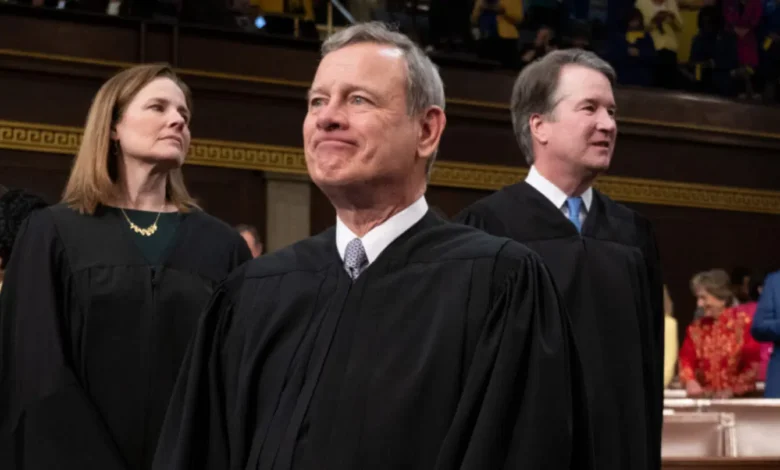Supreme Court Delivers Key Second Amendment Decision

The U.S. Supreme Court on Friday rejected the challenge to the constitutionality of a federal law that bans the possession of a gun by someone who has been the subject of a domestic violence restraining order.
The vote is 8-1 with Justice Clarence Thomas dissenting.
“The court holds that when an individual has been found by a court to pose a credible threat to the physical safety of another, that individual may be temporarily disarmed consistent with the Second Amendment,” SCOTUS Blog reported.
Chief Justice John Roberts wrote that, “Since the founding, our Nation’s firearm laws have included provisions preventing individuals who threaten physical harm to others from misusing firearms. As applied to the facts of this case, Section 922(g)(8) fits comfortably within this tradition.”
Discussing the application by the lower courts of the Supreme Court’s decision in New York State Rifle & Pistol Association v. Bruen, Roberts writes, “Some courts have misunderstood the methodology of our recent Second Amendment cases. These precedents were not meant to suggest a law trapped in amber.”
Otherwise, Roberts explained, the Second Amendment would only protect “muskets and sabers.”
“Why and how the regulation burdens the right are central to this inquiry. For example, if laws at the founding regulated firearm use to address particular problems, that will be a strong indicator that contemporary laws imposing similar restrictions of similar reasons fall within a permissible category of regulations.”
The Supreme Court has been busy lately.
The U.S. Supreme Court is considering whether to hear a case brought by former Kentucky clerk Kim Davis, who is seeking to overturn the court’s decision in Obergefell v. Hodges, a landmark ruling that established the right to same-sex marriage across the nation.
Davis’ attorney, Matthew Staver, expressed optimism about the court taking the case, according to Newsweek.
But William Powell, the attorney who represented the couple that sued Davis, provided a statement to Newsweek that he is “confident the Supreme Court will likewise agree that Davis’s arguments do not merit further attention.”
The case, brought by Davis—a former Kentucky clerk who served six days in jail for refusing to issue marriage licenses to same-sex couples on religious grounds—could pose a significant challenge to federal protections for same-sex marriage nearly a decade after the Supreme Court legalized such unions nationwide.
Some justices, including Clarence Thomas, have signaled a willingness to revisit the issue in recent years, particularly as the court has shifted to the right. That conservative realignment on cultural matters was underscored by the 2022 decision overturning Roe v. Wade, which had guaranteed abortion rights for decades.
If the court were to strike down the nationwide right to same-sex marriage, the matter would likely revert to the states—many of which have yet to pass laws recognizing such unions.
In a newly filed petition to the Supreme Court, Staver argued against same-sex marriage on religious grounds.
“Obergefell was ‘egregiously wrong,’ ‘deeply damaging,’ ‘far outside the bound of any reasonable interpretation of the various constitutional provisions to which it vaguely pointed,’ and set out ‘on a collision course with the Constitution from the day it was decided,’” he wrote.
Davis’ case “presents the ideal opportunity to revisit substantive due process that ‘lacks any basis in the Constitution,’” the petition says, per Newsweek.
“This flawed opinion has produced disastrous results leaving individuals like Davis ‘find[ing] it increasingly difficult to participate in society without running afoul of Obergefell and its effect on other antidiscrimination laws,’” it reads. “And, until the Court revisits its ‘creation of atextual constitutional rights,’ Obergefell will continue to have ruinous consequences for religious liberty.’”
The petition stated that if the court were to overturn Obergefell, the authority to determine marriage rights would revert to the states, while same-sex marriages performed since the ruling would remain legally recognized under a grandfather provision.





